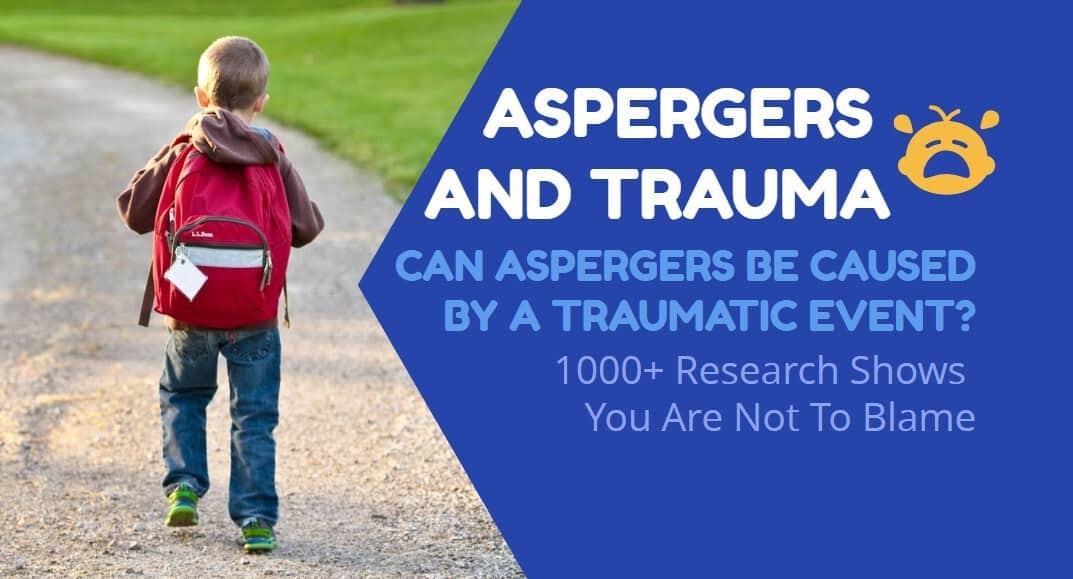When a child is diagnosed with Asperger’s syndrome, parents, family, and friends often wonder can Aspergers be triggered by a traumatic event or poor parenting. So this article is going to answer the question: Can Aspergers be triggered by a traumatic event, AND ALSO: If not, why not?
Can Aspergers be triggered by a traumatic event? Aspergers CANNOT be triggered by a traumatic event or poor parenting. Aspergers is a neuro-developmental condition. Brain imaging studies confirm that autistic brains process information. About 100 genes are thought to be responsible for the differences.
So if Aspergers cannot be triggered by a traumatic event or poor parenting, then: (1) What caused the Asperger’s?, and (2) How can you defend against accusations?
Aspergers CANNOT be triggered by a traumatic event or poor parenting
The easiest way to answer this question is to look at the definition of what Aspergers really is.
As you read the description in the next section, ask yourself, could traumatic events or poor parenting caused these behaviors? As you carry on reading, you will find a recurring theme that there is a difference between not having an inborn ability to do something versus not willing to do something out of fear.
That difference is the key to understand the differences between Aspergers and traumas. In fact, Aspergers and traumas are so different that one can be diagnosed with Aspergers and having PTSD at the same time. That difference is the key to understand the differences between Aspergers and traumas.
In fact, Aspergers and traumas are so different that one can be diagnosed with Aspergers and having PTSD at the same time. Please take some time to check out my article “Complex PTSD vs Aspergers“. There you will find an informative post that summarizes all the information into a well organized list of themes.
Aspergers criteria confirms aspergers cannot be triggered by a traumatic event or poor parenting
The precise wording in the DSM-5 diagnostic criteria for autism spectrum disorder (American Psychiatric Association 2013), is as follows. After that, we will look at each one in turn.
Persistent deficits in social communication and social interaction across multiple contexts, as manifested by the following, currently or by history
- deficits in social-emotional reciprocity, ranging, for example, from abnormal social approach and failure of normal back-and-forth conversation; to reduced sharing of interests, emotions, or effect; to failure to initiate or respond to social interactions.
- deficits in non-verbal communicative behavior used for social interaction, ranging for example, from poorly integrated verbal and non-verbal communication; to abnormalities in eye contact and body language deficits in understanding and use of gestures; to a total lack of facial expressions and non-verbal communication
- deficits in developing, maintaining, and understanding relationships, ranging, for example, from difficulties adjusting behavior to suit various social contexts, to difficulties in sharing imaginative play or in making friends; to the absence of interest in peers.
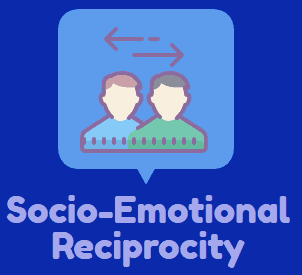
Note that the issues here are the lack of ability to reciprocate socially and emotionally. The lack of social responsibility is not out of fear as would be in the case of trauma response. Rather, it is simply the lack of understanding or processing of what is going on socially.

The criteria here is the lack of ability to communicate and understand non-verbal communications such as facial expressions, body language, and gestures. Psychologists generally agree that up to 90% of interpersonal communications are through non-verbal information. That is why people with autism have a tendency to be very literal with their verbal communications, which is not surprising considering that they are missing out so much from the non-verbal part of the communications.
Now, trauma doesn’t take away our inborn ability to use and to interpret non-verbal communications. A traumatized person or young child could be so exhausted or traumatized to bother with interacting with anyone else. It is also possible to feel an urge to withdraw from any social interaction out of fear of harm. But there is a BIG difference between choosing to behave in a certain way out of fear (trauma) and not having the ability to behave that way at all (aspergers).
If you just think about it, do mums and dads all over the world make serious efforts to teach their newborn how to make eye contact? We just don’t, do we? Why? Because that ability to make eye contact, to establish relationship and bonding with your parents through non-verbal communication is an inborn ability that should develop naturally as the child grows. So, it follows that if the parents did not teach the child how to make eye contact or interact with each other through non-verbal communication, a normal child would still be able to develop those abilities regardless.
This is very different from trauma-related issues. Traumas and poor parenting could cause a child to be more withdrawn than he would have been, predominantly out of fear and self-protection. In other words, trauma response is a deliberate effort and learned behavior to avoid or minimize painful experiences. Because it is a learned behavior, these symptoms would not be seen at infancy. Also, the effects of traumas and poor parenting would cause an abrupt change where there is usually a clear reduction in willingness to interact socially.
Notice that in the case of trauma or poor parenting, it is a question of feeling safe and being willing or able to trust others enough to interact with them. By contrast, for autistic people, they simply do not have that ability let alone being willing.
In fact, there are now millions of people who have learned to overcome their autistic barriers to social interaction by intellectually studying and decoding what is going on and trying to act “normal”. These people are living testimony that when it comes to willingness or desire to communicate with others, those on the spectrum actually appreciate some kind of interactions. This selective or even limited desire to communicate with others is a significant difference when compared to the conscious effort of traumatized children or people to avoid any interaction with others.
Aspergers criteria requires deficits in developing, maintaining, and understanding relationships
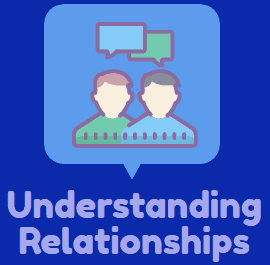
This means having difficulties adjusting behavior to suit various social contexts, difficulties in sharing imaginative play or in making friends, and to the absence of interest in peers.
Now, let me ask you this if you are having difficulty or struggling with something, are you attempting to achieve that thing, or not? The answer is fairly clear, isn’t it? Here, we are talking about a child or a person who wants to fit in but not having the innate ability to do it. It is almost like trying to write but not having a pen, or to cook but have no access to clean water. And just because the ability is not there naturally as an inborn instinct, it doesn’t mean we can’t use our mental powers to learn it. That is why therapy and autism assistance programs are so successful.
In case you wonder about the absence of interest in peers, this is not to say the will is absent like those who are traumatized or have poor parenting. Why? Because the children who show absolutely no interest in their peers happened to be those also have a very intense interest in something else. In other words, they simply find one thing more interesting than the others.
By contrast, children who are traumatized or have had poor parenting, are not preoccupied with an intense focus on something that really intrigues them or interests them. Rather, they are plagued by flashbacks, nightmares, and sometimes children would re-enact the trauma in their games. So where the autistic child is not showing any interest in their peers, they are actually thoroughly enjoying themselves in their own little world. By contrast, a traumatized child or those with poor parenting, they are suffering intensely inside. Now, that is a huge difference, would you agree?
Brain imaging research confirms Aspergers CANNOT be triggered by a traumatic event or poor parenting
Concept 1: Aspies simply enjoy different things
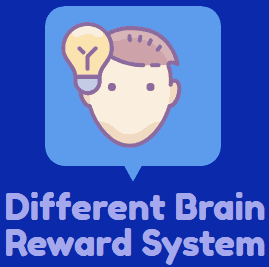
If you go out and ask any random people, “what makes you happy”? You are bound to get wildly different answers. However, if you ask enough people, one thing for sure, the idea of being with family and friends will come up. In other words, for most people socializing and being with others is generally not a chore. In fact, being with like-minded people or friends brings a measure of calm, satisfaction and joy.
In terms of neuroscience, it has been found that when we have positive emotions like this, a particular part of the brain is activated to say “aha, this feels good I need more of it”. They call it the Brain’s Reward System.
And guess what? Neuroscientists have found that this part of the autistic brain doesn’t get activated when interacting socially as non-autistic children do. Even more interesting is the finding that these part of the autistic brain gets activated when the child encounters activities that is intriguing to him (eg. lining up toys). When the same activities are presented to non-autistic children, there is little activity in this part of the brain. So, the first concept is that neuroscientists are showing us are that people on the spectrum simply do not enjoy interacting with others as much as everyone else. (Kampe, Frith, Dolan, & Frith, 2001; Stavropoulos & Carver, 2014; Kohls et al., 2018)
Concept 2: Aspies are just good at different things

There is certainly no denying that we are all good at very different things. And when you agreed that some people’s brains are just so amazing we wonder how they can memorize so many things. Or for some people, their ability to create and write songs is just amazing. And still, there are others whose ability to calculate large sums in the heads is just awesome. Now, wouldn’t you agree that all of these abilities must be somehow linked to how the brain works?
Autism-related hypersensitivity is sometimes thought to be a bad thing. But really, it is a relative term to show that autistic people with these characteristics are more sensitive to whatever it might be that the general population. What neuroscientists (Dichter et al., 2009; Belmonte et al., 2010) have found is that some parts of the autistic brain are extremely active, so they can become supersensitive to certain stimulus (eg. sound, texture or smell). Sometimes that sensitivity to sound can be translated into musical talent.Other times sensitivity to taste then be turned into an amazing talent in wine testing or similar jobs in the food industry.
So with that part of the brain being so active, we can say it is like a computer that is fully loaded with high demanding programs and becoming unresponsive to further demands. And as such, the person may appear unresponsive to your calls or mentioning of their names and it so happens that just because social interaction and communication come naturally to most people, those with an autistic brain would simply have to work harder at attaining those skills. Provided they are not cognitively impaired, it is a skill that they can learn.
So, basically what neuroscientists are saying is that the autistic brain has their strengths and weaknesses like everybody else, but what might be intuitive to most of the people could be difficult for them and vice versa.
Concept 3: Aspies do not have emotion sensing neurons
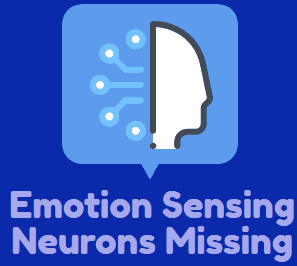
Have you ever found yourself in a situation where you just cannot stop giggling because someone else is also can’t stop giggling? Or what about experiencing an increased heart rate and even sweaty hands when you’re watching action films like Mission Impossible. Or perhaps having a good old cry watching romantic films. You see, these emotions can be quite catchy at times. And this is because there is a specific part of our brain that somehow picks out emotions around us and reproduce them in our system.
What is important to note here is that we have no control over how the brain does this. For example, you may want to stop giggling because it is embarrassing, but the brain’s mimicking mechanism continues. You might want to pretend you’re feeling quite call and everything is so predictable in a thriller film they are not the least being affected, but the body just responds. How about men who try to say they are rather unmoved by some movies because they know it’s not true, and yet they just cannot hide the tears. We have all experienced something similar, haven’t we? So there is no doubt that our brain is very good at picking out surrounding emotions and reproducing them in our system.
Neuroscientists have been studying this for a very long time. Although they cannot decide just yet exactly which neuron is responsible for this, it is agreed that a certain area of the brain is definitely activated when need naturally mimics the emotions around us. It is also noted that this part of the brain does not get activated in autistic brains. This perfectly explains what others would call a lack of empathy.
Now, let’s pause for a moment. Usually, when we say someone lacks empathy, it is not a very nice thing. But as we have discussed, what happens with this part of our brain is completely out of our control. So what neuroscientists found could be a great comfort to those on the spectrum as well as their friends and family. It makes it abundantly clear that the lack of empathy is not because they are selfish, and self-centered. Instead, it is like a part of the brain just don’t exist in autistic brains.
It is almost like saying to someone who was born without an arm that they don’t want to cook or do any housework because they don’t want to and they are selfish. It is simply not the case. With severe autism where cognitive ability is severely impaired, the lack of ability to process these things in the brain is probably quite visible to others. The problem with Aspergers, or high functioning autism, or those who are not cognitively impaired, this is a disability that is truly invisible and very much misunderstood.
Concept 4: Aspies do not have access to the information that emotion sensing neurons usually provide
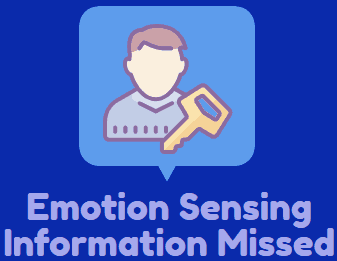
You see, when we interact with others or watch films, that part of the brain that mimics emotions and reproducing them into our system enables us to feel what they feel, and so we know how to interact with others. For example, we may hear someone saying something really harsh. Even if it’s not directed towards us, the hurt that is felt by the recipient is reproduced in our system so that we also feel the hurt. How we then respond to our feelings and the situation is highly personal. Everyone is different. But for an autistic brain, the part of the brain that picks up emotions around us just doesn’t exist.
The system that senses those emotions and then reproducing them in the internal system doesn’t exist. So, instead of having a full understanding of the social situation, an autistic person would simply see someone had said something and, as a separate piece of information, another person is crying. Perhaps intellectually they were taught crying equals not happy, so they would be able to understand the crying person is upset. But trying to understand the reasons for feeling upset is a lot more challenging. Of course, depending on the cognitive ability of the individual, being on the spectrum does a mean we can’t overcome those issues. It just takes us longer and a lot more work.
So even though this section is not so much about neuroscience such, it follows on from what we’ve learned in concept 3 that the autistic brain simply doesn’t have the ability to read someone else’s mind. And to be honest, many of those who are supposedly normal aren’t mind readers either. If we didn’t have the intuitive ability to mimic and reproduce emotions, most people would not be able to second-guess what is in someone else’s mind. Even the cleverest psychologists will tell you there is no such thing as a professional mind reader, but only a careful systematic study of human behavior and making a decision on the balance of probability.
Genetic research confirms Aspergers CANNOT be triggered by a traumatic event or poor parenting
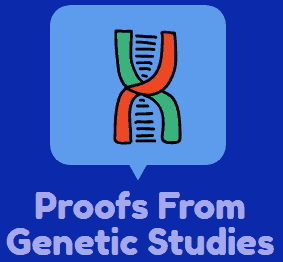
When we look at reliable research with find that scientists generally agree that autism and Aspergers are 90% explained by their genes. The evidence is particularly strong when autism and autism-like traits run in family. According to https://www.the-scientist.com/news-opinion/more-autism-genes-identified-64957, researchers at Harvard Medical School had confirmed 99 genes that are directly related to autism. This report, which was published on 16 October 2018, is so precise that the group of genes that are responsible for intellectual disability versus developmental delay can now be identified.
Why do people say Aspergers can be triggered by a traumatic event or poor parenting?
Genuine but out-dated research or news

It wasn’t until 2007 that the National Institute of Health initiated a large-scale research programme in autism. And the trouble is when you search for information on Google, sometimes Google has a preference for older research articles that are written for the public than the latest research articles that are written for fellow researchers. In fact, Google has a separate search engine called Google scholar to separate those highly scientific latest research articles from those that are written for public consumption. So, what you see in Google are sometimes old articles that were written before 2007 (i.e. more than 10 years old), as these are more likely to appear on the first page of your search than up-to-date information.
The only exception is if the researchers are smart enough to write a separate article as a news announcement to draw Google’s attention, then there may be some chances of you getting hold of fragments of the latest information in the first few pages of your Google search.
Outright Misinformation

Another problem is that there are far too many people who are setting up a website purely for the purpose of making money. I am not saying all website of the sorts of bad stop, however, we cannot deny the fact that some people are out there only for the money and are clever at engineering their articles into the first page of Google. If their content is good and reliable, that’s great for everybody. But the sad thing is sometimes less than helpful and certainly inaccurate articles are listed high up on Google’s ranking.
Controversy = good money

Another problem is that controversies go viral on the internet. So anything that is controversial or is highly shareable and sensational, they would have a lot of sharing activities going on in the social media. Google assumes that if a piece of content is shared or liked or commented on, it must be good material that needs to be on first page of the results. And of course, to say that poor parenting is to blame could be a hot topic. Even if we swing the other way and say poor parenting are not to blame, that too will be a hot topic. Remember: no real serious research is required to shore up on Google’s front page.
A more reliable way to do research

So next time you do some researching Google, make sure you read on for the search results in the next few pages as well so that you get better coverage information that you need. As you read, it is a good idea to always check out the about us section and find a little bit more about the organization or the writer. You can also tell a good piece of writing by the amount of information that they are prepared to give you, and how helpful they are trying to be. People with genuine interest to serve the community will always be helpful to you.

Another reliable way of getting solid information is to read physical books published by well-known researchers. You can always Google search the names of the authors, and find out their area of interest and whether they are well respected for the topic of interest. Books like that have very reliable and accurate information that enables you to make informed decisions.
Books usually take 5 to 10 years from research application to publishing a book in the public domain. Although it is a little slow, there will never be anything controversial written in the book. Those books are typically written as a manual and would only contain information that is confirmed as facts. Occasionally, there are a paragraph or two that the authors may insert to reflect the latest debate in the research community, but it will be abundantly clear that answer is inconclusive and no one should be dogmatic about it.
Another good thing about these books is the references that point to the original research. That way you can check the basis for making certain claims, and how confident the researchers were when they made that claim. Also, with Google Scholar, you can get hot-off-the-research-bench information by tracing which research that are building on the referenced work mentioned in the books.
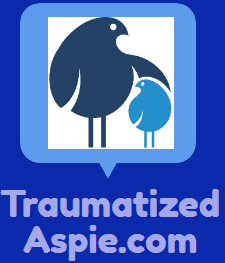
Alternatively, because that’s exactly how I do my research to produce these articles, you can take a shortcut by bookmarking https://traumatizedaspie.com and just keep checking what’s new, or sign up to my newsletter.
How to explain and defend yourself against the myths
Method 1: using the list of symptoms
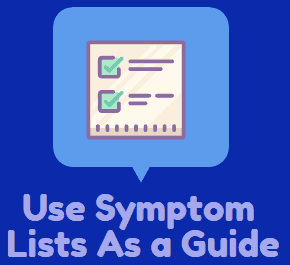
In some countries, autism is fairly well known, and sometimes a medical card or autism alert card is available for the autistic person or family and friends to carry around with them at all times. These are provided so that the symptoms and management of autism can be clearly and easily explained by the information written on the card. Now if you happen to have one of those, you can always use them as a guide to talk it through with your friends in what way does autism or Aspergers is different from traumas. I know I have written a lot in this article, but once you got the idea, all you need is just a little structure like a list of symptoms for autism or Aspergers to guide you through. The rest will just come naturally.
If you don’t live in countries where these alert cards are freely available, do not despair. There is nothing to stop you from using the infographics here at traumatizedaspie.com. Just scroll to the bottom of this page and you will find a good collection of them.

Another effective method that I have seen others use are to simply state that a diagnosis cannot be made unless there are composite signs, AND there are a no other conditions that would better explain the symptoms. That means PTSD and poor parenting would have been considered along with autism or Aspergers. The child has been professionally diagnosed by a well-qualified clinician, and therefore there is no need to speculate if trauma or poor parenting is to blame.

Out of all three methods, this is the most effective one that you can use. Simply tell them you have done a lot of research and you know exactly where you stand on the matter. By all means, tell them with hundred percent confidence and conviction. You could then gently ask if they are interested in what you have found in your research if they are interested, you can go on and highlight a few things that you particularly like. You can reference many materials that you have read come across, and you don’t have to rely on this article alone (albeit that I would be really flattered).
You know what? For most people, it is easier to think if there are hundred and one reasons why something is good, it must be good. Quite honestly, that is how many people think. It’s easy, but it’s taking shortcuts. Really unless it is something that is vitally important and affects them very personally, it is just human nature not to look so closely into things. We all do it to some extent. So when you confidently tell your friends and family that you have done a lot of research and you know exactly where you stand, most people would just leave it at that. Even if you sincerely ask if they would like to have look at what you have found in your research, in most cases they would politely decline.
Do you feel uneasy about being confident? If so, this is a very good sign that you really are an excellent researcher. Having achieved multiple masters degrees and conducted research at Ph.D. level, I can reassure you the idea of impostor syndrome is very very real. Somehow, no matter how much I read, I simply felt I could never measure up to all the researchers that I know around the world. And to call myself a researcher I felt like stuff. This feeling was hindering my progress. I was very fortunate to have a very caring and observant Ph.D. supervisor who gave me concrete evidence that it is okay to call myself a researcher and is become the with my research findings. And so I want to share similar thoughts with you.
If you have read this far in the article, there is no reason why you should doubt your ability as a researcher. I am not saying that this article is the best there is out there and you have no need to read anything else. But it is an absolute fact that this article is not an easy read. It is packed with information and takes you through reasonably detailed scientific arguments to prove the point. It also gives credit where credit is due, and I make references to the original researchers so you can verify the details. But I also discredit those who purport to be good researchers but in fact, had other motives. I have also highlighted biases in Google research and gave suggestions on how to overcome them. So all in all you are reading in-depth research material. That is why I said if you’re reading this far, there is no reason why you should doubt your ability as a researcher. You are clearly a thinking person and can digest a huge amount of information as well as making sense of it. So, by all means, be confident with your knowledge and what you believe.
Related Questions
Can you outgrow Aspergers? The wiring pattern in the brain that cause Aspergers largely stay for life. However, in some case, new behavior can be learnt, and this in turn can have some positive impact on the wiring pattern in brain.
Could severe childhood trauma symptoms be misdiagnosed as Aspergers? In any clinical situation, there is always a risk of misdiagnosis. However, Aspergers and Trauma each have their own unique set of symptoms that experienced clinicians can use to differentiate between the two.
How is Aspergers different from autism? Aspergers is a subset of Autism where the person does not suffer from delayed language developments or general learning difficulties. Therefore, those with Aspergers are also autistic.
Can you develop autism at any age? Autism is defined as a condition caused by having a different wiring system in the brain, and many genes now have been identified as indicative of an autistic person. Therefore, Autism is in-born and cannot be developed at later stage.
I hope you enjoy reading this post, and I’d really love to hear from you. Please leave a comment below and let me know what you think.
